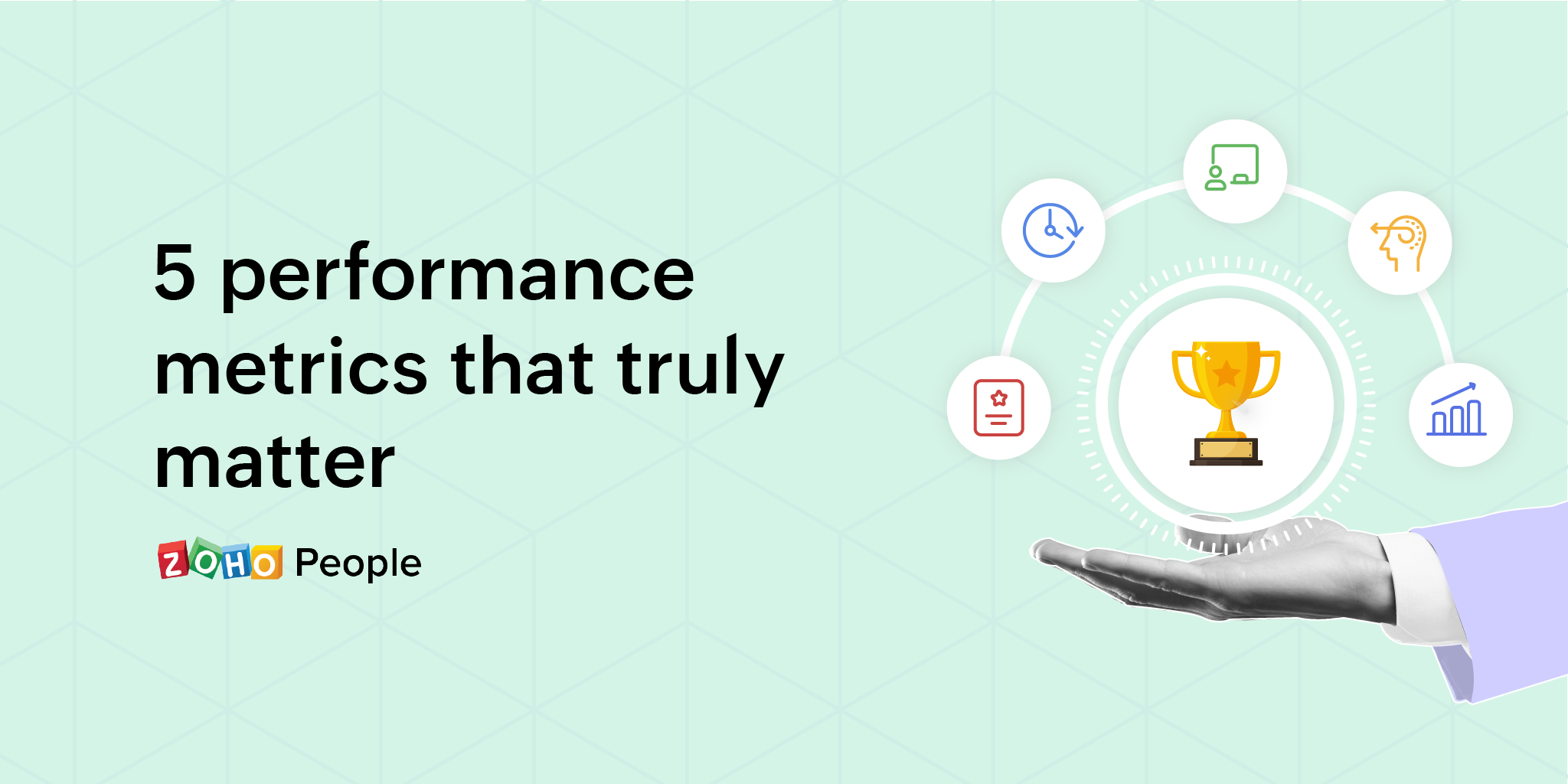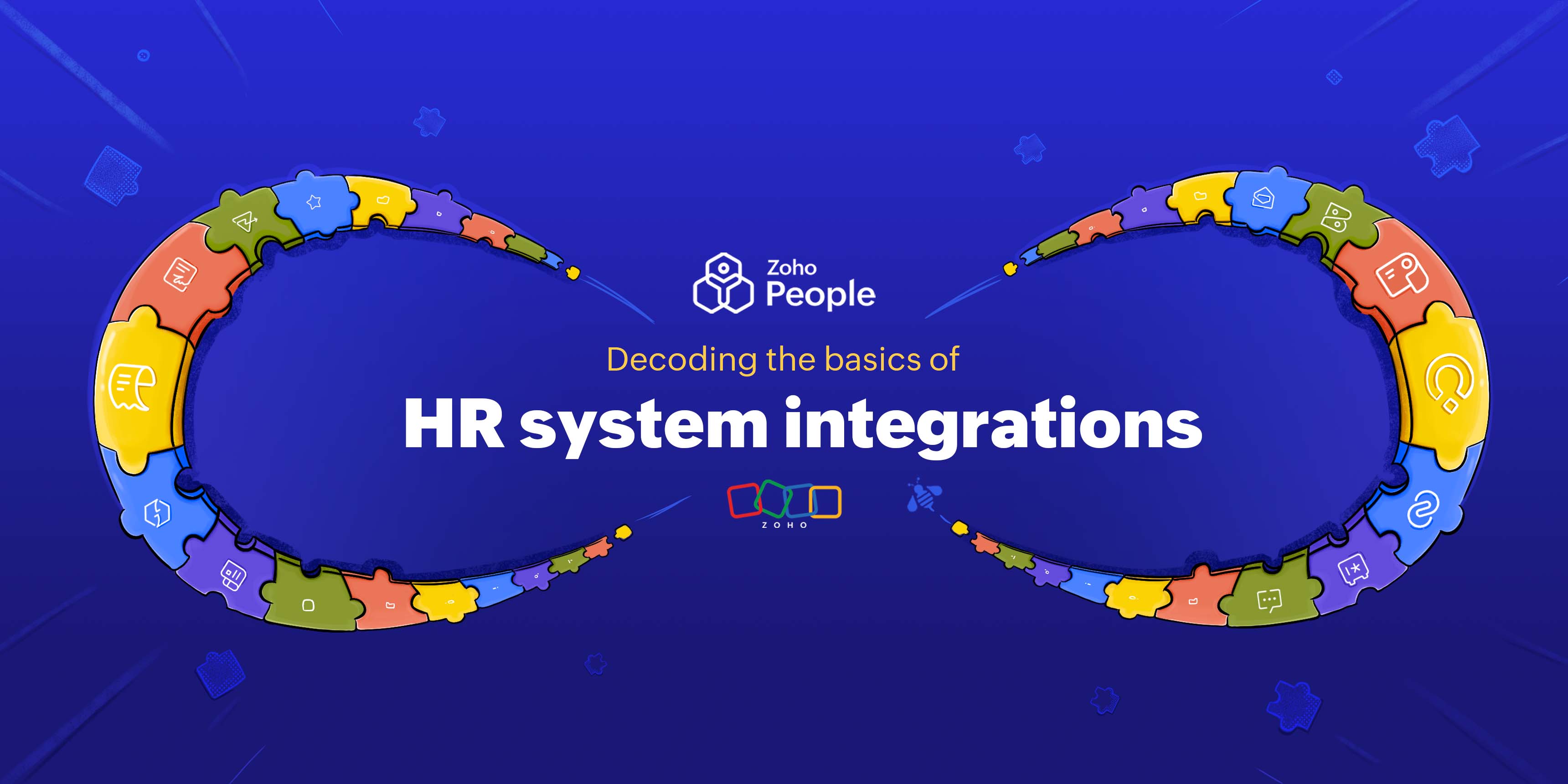- HOME
- HR insights
- What are some common performance metrics?
What are some common performance metrics?
- Last Updated : August 23, 2023
- 3.9K Views
- 4 Min Read

As an HR professional, you know how employee performance plays a significant role in improving your organization's growth and success. A performance review is one of the most vital HR operations that have to be managed prudently to accomplish your organization's strategic goals. From conducting self-evaluations and reviewing the assigned goals to coordinating with team managers and providing feedback, the performance review process is a huge task. Considering the impact it has on your organizational development, though, it's definitely worth undertaking.
However, you may not be able to get the most out of employee performance reviews if you don't use the right metrics to track and measure their actual performance. Let's take a look at five essential performance metrics that'll lead your organization to the growth track.
Work quality
Work quality is one of the most important performance metrics that highlight the value offered by each of your employees. When the work quality of your employees is unmatched, your customers will keep coming back to you. Some may even become brand ambassadors. That's why it's essential to gauge the quality of your employees' work and help them improve regularly.
However, measuring work quality is difficult as it cannot be quantified. It's subjective and depends on the type of work your employees do. For some job roles, collecting feedback may help you analyze work quality. For instance, the work quality of employees belonging to customer-facing roles can be evaluated by receiving feedback from your customers. Similarly, the Net Promoter Score can be used to evaluate the work quality of employees belonging to product development roles. The quality of work done by marketers can be analyzed by the quality of leads they attract.
Time management
As much as work quality matters, the ability of your employees to complete their tasks within a deadline matters too. There should be a healthy balance between quality and time management. Fixating on quality, if your employees complete fewer projects than they're expected to, it's not going to help your organization.
If you're using timesheets to manage your projects, assessing the time management skills of your employees can be pretty straightforward. This way, you'll easily get to understand the difference between assigned vs actual time. If you don't use timesheets, you'll have to collaborate with team managers to find how many times employees have missed their deadlines and how often they've turned in their deliverables on time. A note of caution: always pair time management with work quality. You don't want your employees to put up something ordinary just to meet deadlines.
Training
You can never scale up employee performance without conducting proper training programs. In fact, meaningful training programs prepare employees to understand their work better, take on new roles and responsibilities, and get ahead in their careers. Your employees should be eager to learn new things. That's why the ability to take on training programs should be considered a vital performance metric.
You can use your Learning Management System (LMS) to see how many courses your employees have taken in a particular year. Keep a tab on their course completion rate too. Similarly, check the performance levels of your employees before and after they take a course. This will help you understand how they have put the learned skills to work.
New initiatives
The ability of your employees to take new initiatives and innovate is one of the greatest indicators of where they are heading in terms of their performance. When employees show the willingness to come up with creative solutions to drive better results and solve challenges, you know they are committed to their work. New initiatives can also have a huge impact on your organizational success.
There's no complex formula to measure this metric accurately. During the performance review, you could probably ask your employees to give a list of new initiatives that they have devised during the period under review. Also, encourage managers to analyze the results of the initiatives and how they impacted their business.
Productivity
Last but not least, productivity is one of the most obvious performance metrics that should be leveraged to boost employee performance. It's quite common for organizations to measure productivity by calculating the number of tasks or projects completed within a specific time frame. It's all about how efficient your employees are in getting their tasks done. You can probably consider this the intersection between work quality and time management.
Measuring productivity is completely based on the kind of work your employees do. If your employees are in customer support, it's about how many tickets they close. If your employees are in sales, it's about the number of deals they close. Set clear expectations every review period to measure employee performance at the end of the year.
Wrapping up
As an HR professional, it's your responsibility to measure employee performance accurately, give your employees suitable monetary benefits, and scale up your business success. Using the right metrics that are consistent with your organization's job type can be helpful to track and improve employee performance. We hope this blog gave you an insight into different performance metrics that lead to growth.
Zoho People, our HR Software, comes with a powerful Performance Management System that is packed with all the useful features required to step up your performance reviews. From 360-degree feedback, continuous review, and goals to performance reports and analytics, we've got it all. Learn more about Zoho People's Performance Management System.
 Tarika
TarikaContent Specialist at Zoho People


